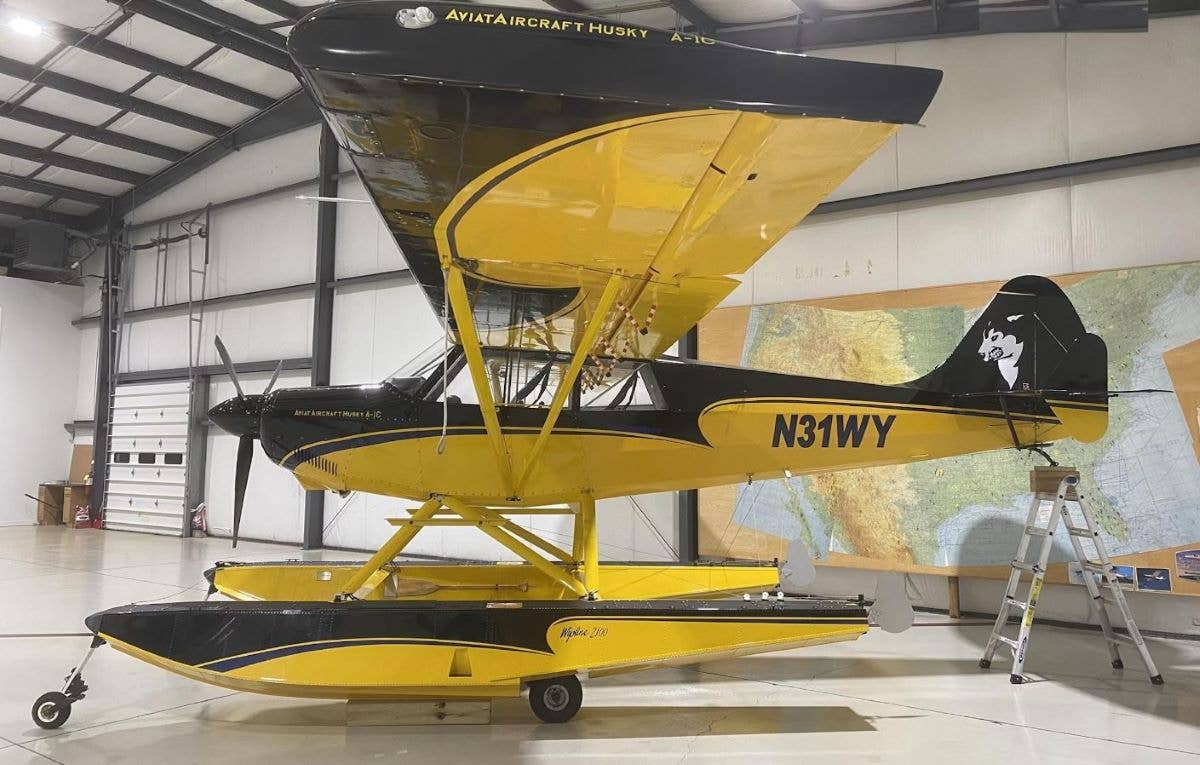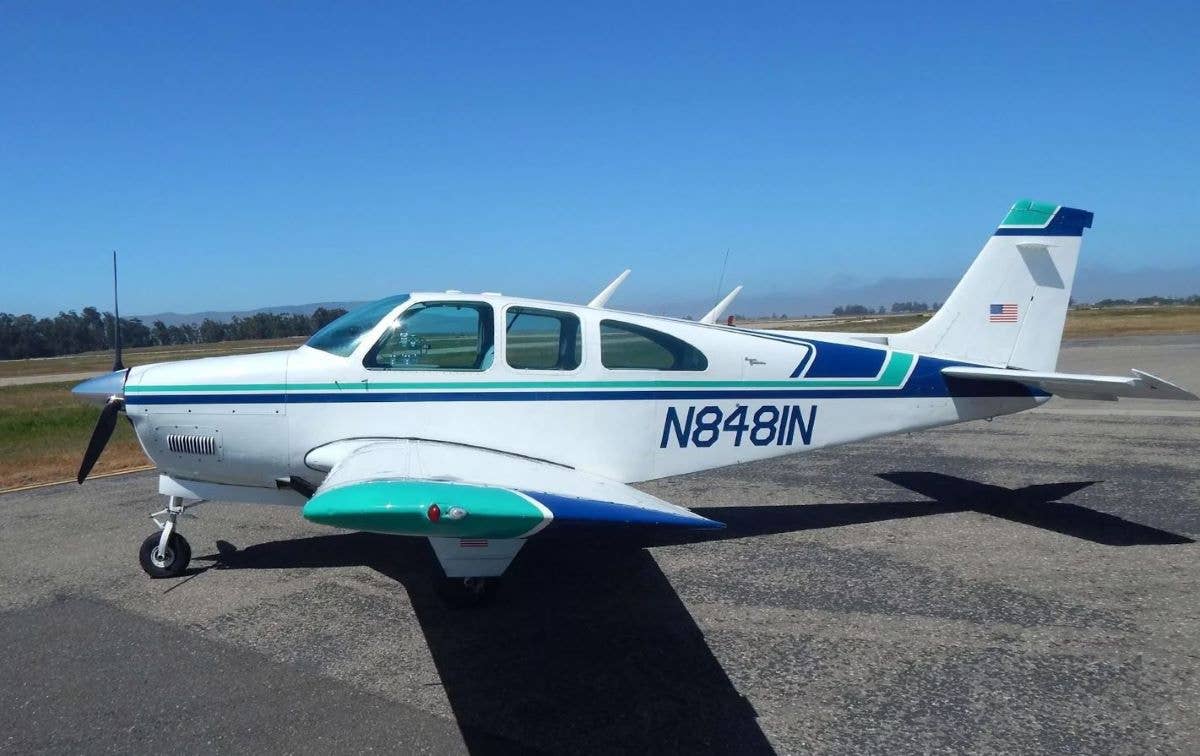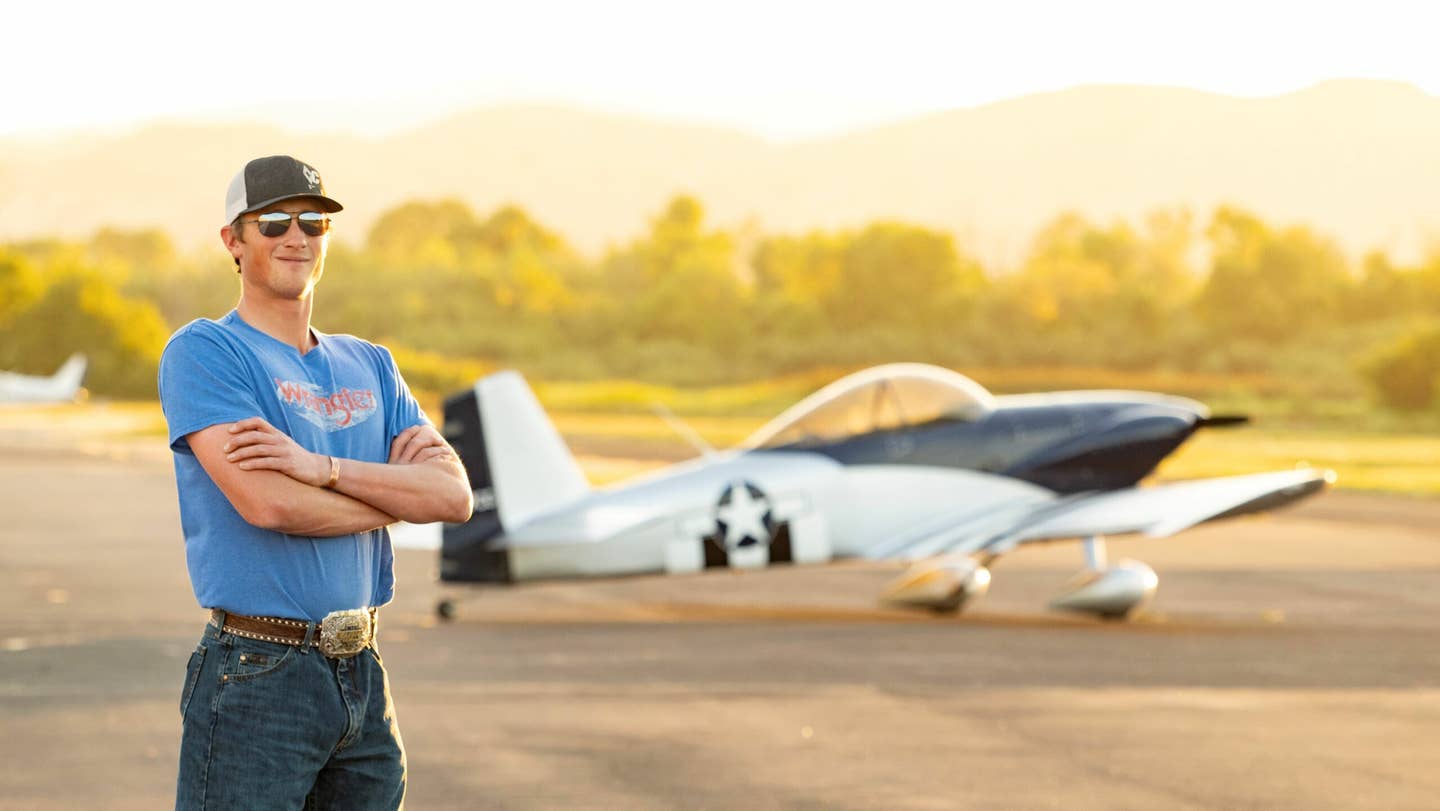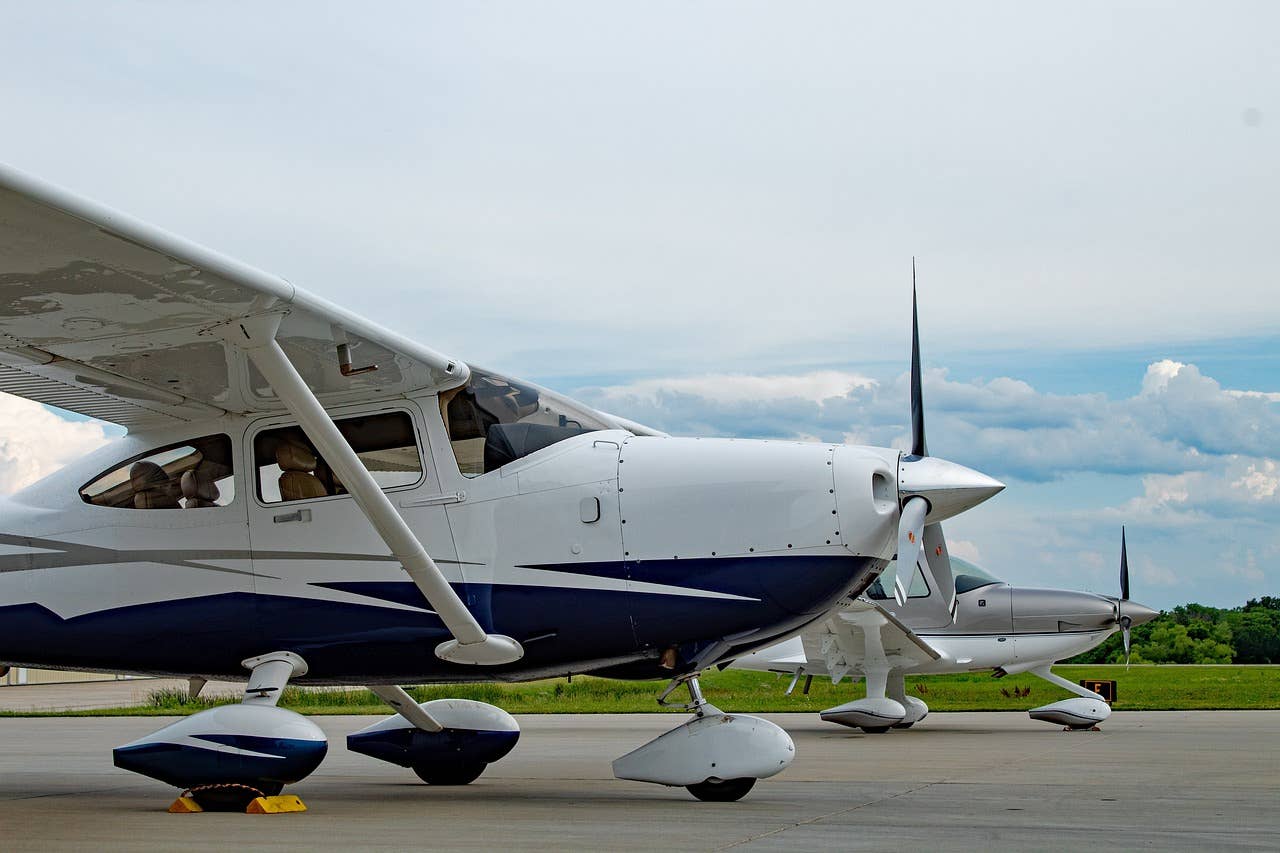Elixir Aircraft Glass Cockpit EASA Certified
The approval adds state-of-the-art touchscreens for pilot interface.
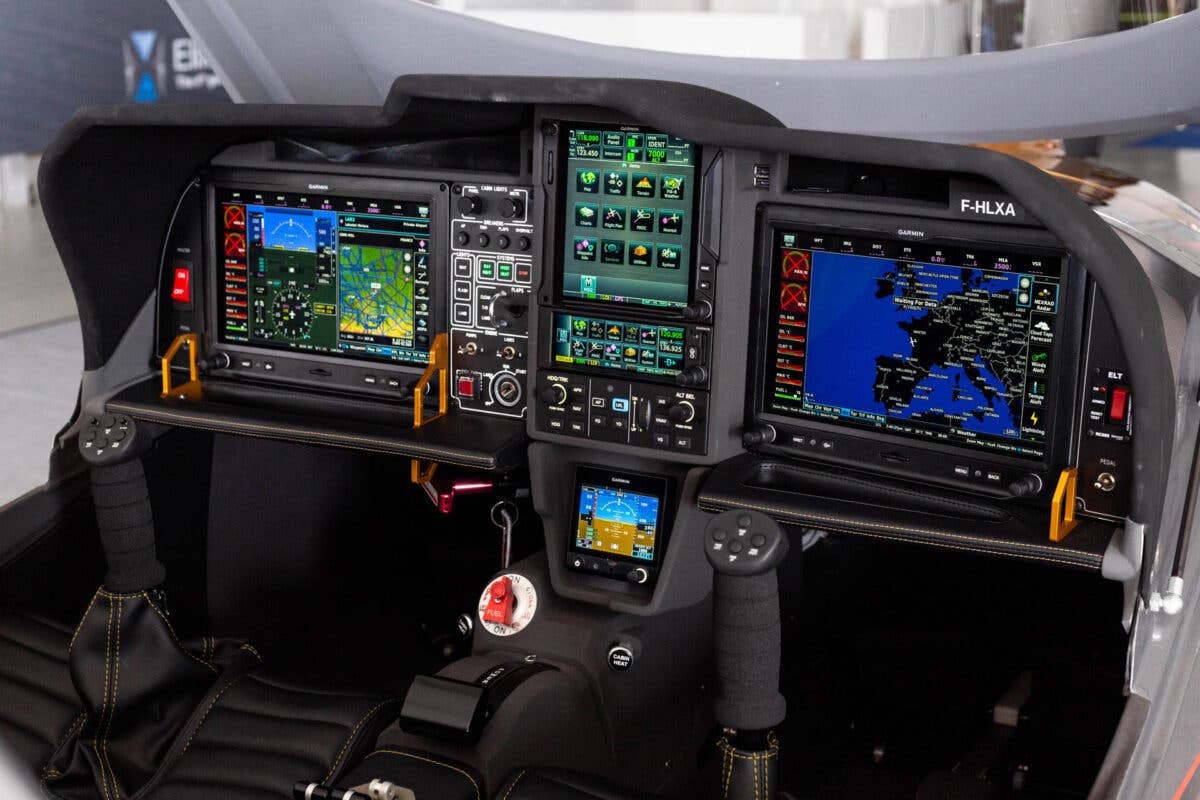
The full glass cockpit layout includes dual Garmin G3X touchscreens, a GTN750xi, and GNC355a. [Courtesy: Elixir Aircraft]
Elixir Aircraft has received EASA certification for the full glass cockpit layout of its design, the Elixir 100HP.
Based in La Rochelle, France, Elixir Aircraft is a fourth-generation Part 23 aircraft manufacturer.
The Elixir is a low-wing, T-tail design. The cockpit for the two-place trainer consists of dual Garmin G3X touchscreens, a GTN750xi, and Garmin GNC355a comms and nav backup unit.
According to the company, the Garmin avionics suite is "built to withstand the rigors for flight training" in addition to offering an aircraft that is more environmentally friendly than its predecessors in the training market as it reduces "carbon emissions by nearly 70 percent compared to other old generation aircraft."
The company is pursuing FAA Part 23 certification.
The Elixir comes equipped with a ballistic parachute, AoA indicator, double-slotted electric flaps, an explosion resistance fuel tank, and reinforced oleo-pneumatic landing gear and combined nose wheel, which offers a wide track and low center of gravity to minimize bounced landings associated with loss of control accidents and runway excursions.
The cockpit is designed to appeal to the global training market, said Mike Tonkin, worldwide head of sales for Elixir Aircraft. Tonkin noted that the average age of the single-engine piston training fleet is 48 years old.
"As we know the aging single-engine piston fleet needs replacing globally,” Tonkin said. “At Elixir Aircraft we feel we have the perfect EASA CS Part 23-certified aircraft to meet the current market requirements. The Elixir is modern, safe, versatile, and extremely cost-effective with an average hourly operating cost of around 50 euros per hour [$53.97] for any ATO/FTO flying around 500 hours per year per aircraft.”
About the Company
Elixir Aircraft was established in 2015 with a goal to create safer, more economical, and versatile aircraft for the global training market. According to the company, the aircraft are designed to be resistant to technical failures and learner friendly. To that end, Elixir Aircraft uses the Carbon Oneshot, a technology utilized in competitive sailing, to simplify the structures.
According to Elixir, "more simplicity means less failure, therefore more safety, but also less maintenance and less costs." The company estimates the hourly operations cost for its aircraft to be approximately $60, factoring in fuel and maintenance.
In June, Elixir announced an expansion of its headquarters in La Rochelle to 150,000 square feet. The company plans to produce more than 300 aircraft a year and employ more than 1,000 people by 2033.

Subscribe to Our Newsletter
Get the latest FLYING stories delivered directly to your inbox



